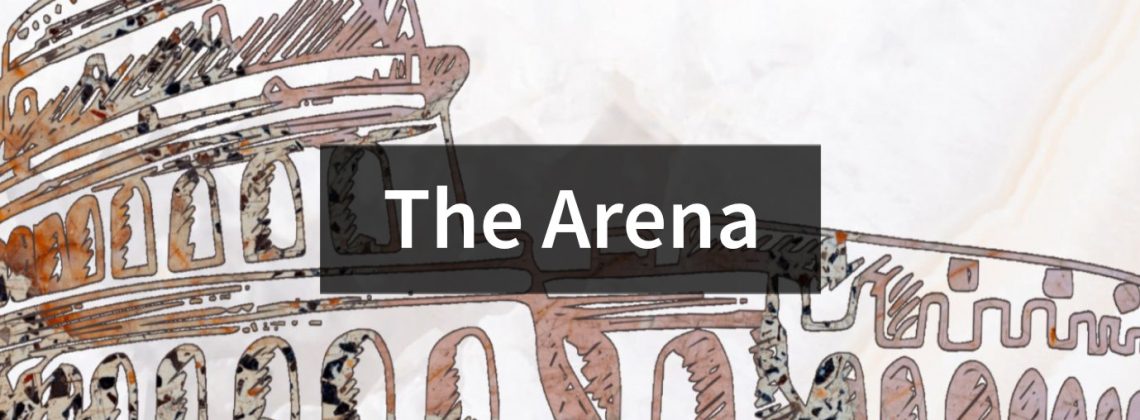

A blessing of unicorns upon your Saturday! This week’s Unicorns are all about reading, literature, and education.
***
Christopher Newfield’s MLA Presidential Address from earlier this month is available for all to read. This essay is a time investment, but worth your while if you want to consider the state of one field of the humanities—the literary arts and languages—at this time. Newfield is coming from a different perspective than I hold overall, but the questions he asks, and the challenges he considers, are worthwhile. The abstract gives a taste:
How do we build the working conditions we need to really do our jobs? By really do I mean being able to create the new forms of knowledge that society will need to get through the next thirty years, and being able to work with our students with a scope and intensity we desire and they deserve. Only a small minority of us now have proper working conditions. We need them for the whole profession and not just for the privileged few.
***
Karen Swallow Prior’s departure from teaching full-time has not meant leaving teaching behind. It has been lovely to see her new Substack become, in effect, a literature class. Public humanities for the win! And this week she has brought a guest lecturer, Jack Heller, to consider Shakespeare.
***
Sarah Reardon, a recent college graduate who had been educated in a Classical Christian school and now teaches in one herself, has a wise essay in Plough with some caveats about the “Christian bubble” such schools foster. A taste:
Even as we are agents and citizens of the City of God, constructing our communities among the cities of men, we cannot forget that we are not yet in the City of God but remain here in the earthly realm. If we try to shake off our share in this world and its sin, the pressures and pains brought by sin will only become starker and sharper to us. “If we say we have no sin, we deceive ourselves, and the truth is not in us,” writes the apostle John. And yet, John continues: “If we confess our sins, he is faithful and just to forgive us our sins and to cleanse us from all unrighteousness.” The virtue of humility is not limited to a Christian’s involvement in the church but must extend to all of life. Thus Christian schools should cultivate the same attitude of humility and spirit of confession that scripture commands for members of the church.
***
In another reminder that once a professor/teacher, always a professor and teacher at heart, Robert Jensen is a retired professor, but in his essay for Front Porch Republic this week, he is still thinking about “Academic Joy”—what made the teaching career truly worthwhile. His conclusion is truly lovely:
Time for a closing metaphor, this time borrowed from Wendell Berry’s poem, “To Know the Dark”:
To go in the dark with a light is to know the light.
To know the dark, go dark. Go without sight,
and find that the dark, too, blooms and sings,
and is traveled by dark feet and dark wings.
We are the best teachers when we aren’t afraid of the dark. When I began teaching, I went into the dark with the biggest flashlight I could find. That light allowed me to see many things, but the intensity of the beam obscured other things, those traveling in the shadows. That light allowed me to feel smart, but these days I am less reassured by being smart. The older I get, the more I realize that being smart isn’t going to get us all the way home.
So these days I carry a smaller flashlight, and I turn it off as often as I can muster the courage. My best teaching is when I go dark.
***
Many thanks to Robert Jensen also for recommending Antoine Davis’s moving essay about generational trauma, family history, and writing about these topics from his prison cell: “Racist Roots: A Prison Cell Journey into My Mother’s Past.”
***
Earlier this week, I learned that Eugene Vodolazkin’s latest (and, I think, greatest) novel, A History of the Island, has made the longlist for the Dublin Literary Award. So if you missed Jeff Bilbro’s superb review of it for Current this summer—or if you just need to re-read the review now and then go read the book—here you go!
***
Finally, something from me about Wind in the Willows and other truly beautiful children’s books in Ekstasis Magazine (with a shout-out to Current Contributing Editor Tim Larsen, who has written about a pioneer of children’s literature, George MacDonald): “Shouldn’t Children’s Books Still Be Beautiful?” A taste:
Perhaps not every book we read will fill us with a “spirit of divine discontent and longing,” but maybe more books in our lives should live up to this standard. For parents, such a goal is particularly significant: what we read with our children matters, because our time with them is so short, and how we spend it will form their tastes and character for life.
It may sound dramatic and, indeed, somewhat stress-inducing, but our children are only little for a brief window, a mere blink of an eye, we say in wonder as we reflect on the years that fly by. Should we not form them, therefore, from the very beginning to love beauty, wonder, and the transcendent? What if we placed this as a goal for educating them, especially in the early years?